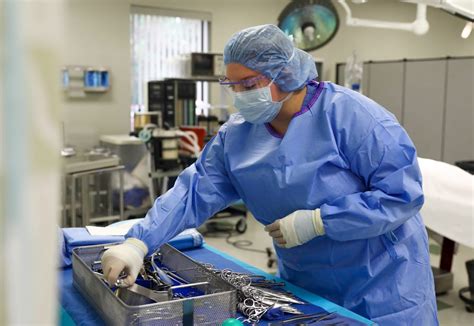How to Become a Scrub Tech: A Comprehensive Guide
Becoming a scrub technician, or surgical technologist, is a rewarding career path for those interested in healthcare and the operating room environment. This guide provides a step-by-step approach to help you navigate the process and achieve your goal.
Understanding the Role of a Scrub Tech
Scrub technicians play a crucial role in surgical procedures. They work alongside surgeons, assisting in preparing the operating room, sterilizing instruments, and handing tools to the surgical team during operations. Their responsibilities demand precision, attention to detail, and a calm demeanor under pressure. Key skills include sterilization techniques, surgical instrument knowledge, and maintaining a sterile field. The job requires physical stamina and the ability to stand for extended periods.
Steps to Becoming a Scrub Tech
1. Education and Training
While some experience can be gained on the job through apprenticeships, formal education is highly recommended and often required by hospitals. Your options include:
- Associate Degree in Surgical Technology: This is the most common pathway. These programs typically last two years and provide a comprehensive curriculum covering anatomy, physiology, surgical procedures, sterilization techniques, and medical ethics.
- Certificate Programs: Shorter programs focusing on surgical technology are also available. While they may not offer the breadth of an associate's degree, they can provide a solid foundation.
- On-the-Job Training: Some hospitals may offer apprenticeship or mentorship programs, where you gain experience while working alongside experienced scrub techs. However, this path is less common and usually requires prior healthcare experience.
Choosing the right program is crucial. Look for programs accredited by the Commission on Accreditation of Allied Health Education Programs (CAAHEP) or the Accreditation Review Council on Education in Surgical Technology and Surgical Assisting (ARC/STSA). Accreditation ensures the program meets industry standards.
2. Gaining Practical Experience
Hands-on experience is invaluable. Many associate degree programs incorporate clinical rotations, providing students with real-world experience in various surgical settings. Seek out opportunities for externships or volunteer work in hospitals to gain exposure to the operating room environment.
3. Certification and Licensure
Certification is usually required or highly preferred by employers. The National Board of Surgical Technology and Surgical Assisting (NBSTSA) offers the Certified Surgical Technologist (CST) credential. Passing the CST exam demonstrates your competency and professionalism. Licensure requirements vary by state, so research your state's specific regulations.
4. Job Search and Networking
Once you have completed your education, certification, and gained practical experience, it's time to begin your job search. Network with professionals in the field, attend healthcare career fairs, and leverage online job boards to find suitable opportunities. Highlighting your accreditation and certification will significantly improve your chances.
5. Continuing Education
The medical field is constantly evolving. Staying current with the latest advancements and techniques is crucial for maintaining your skills and career progression. Seek out continuing education opportunities to enhance your knowledge and expertise.
Essential Skills and Qualities
- Strong attention to detail: Surgical procedures demand precision.
- Excellent hand-eye coordination: Precise handling of instruments is essential.
- Ability to work well under pressure: Operating rooms are often high-stress environments.
- Teamwork skills: Collaboration with surgeons and other healthcare professionals is crucial.
- Physical stamina: The job can be physically demanding.
- Commitment to sterile techniques: Maintaining a sterile environment is paramount.
By following these steps and cultivating the necessary skills, you can successfully navigate the path to becoming a qualified and highly sought-after scrub technician. Remember, dedication, perseverance, and a commitment to lifelong learning are key to success in this rewarding healthcare profession.
